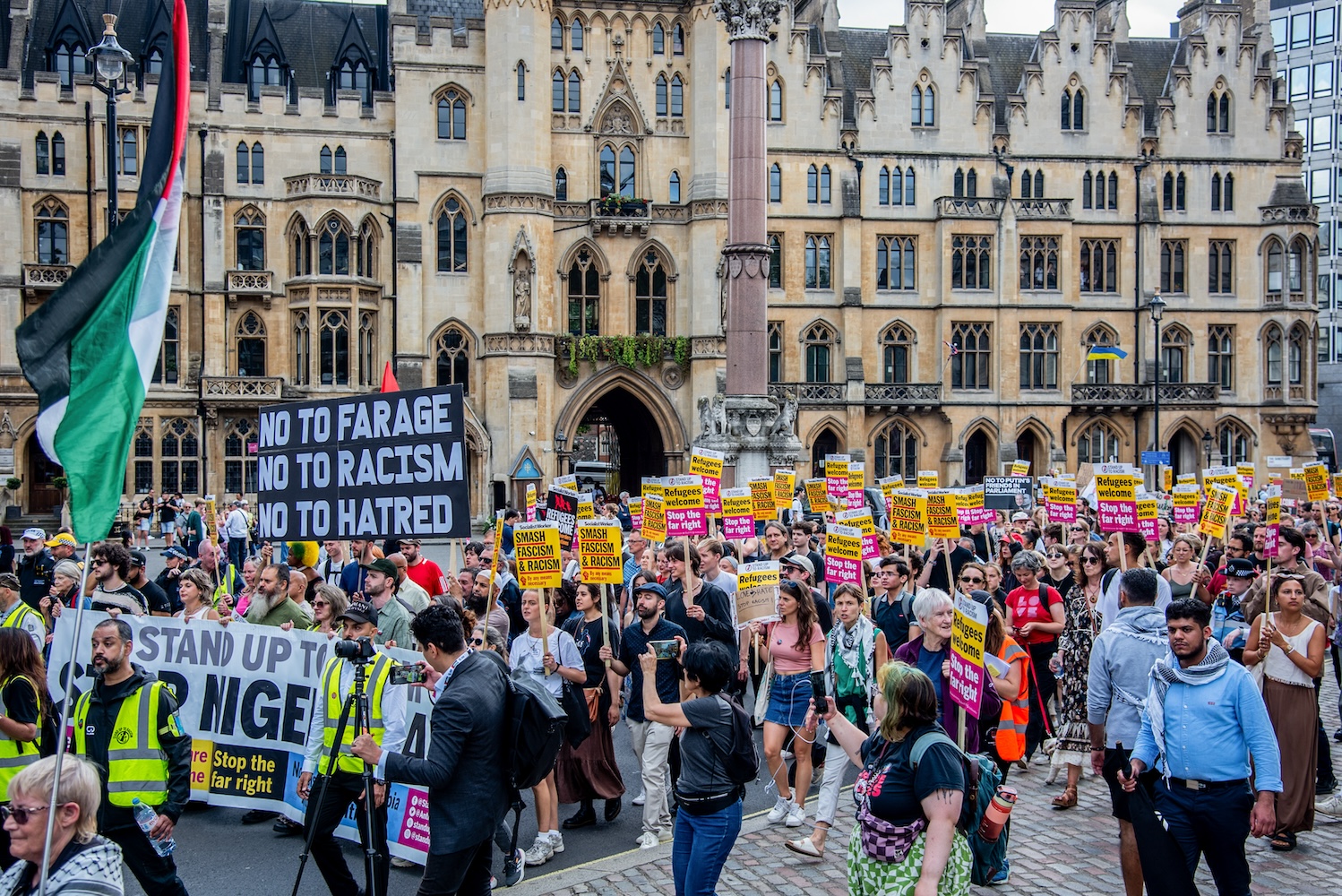Thousands of protesters took to the streets across England on August 7 to rally against racism and support refugees. The demonstrations came in response to a week of far-right riots that had gripped the nation. The protests resulted in over 400 arrests and widespread concern about rising racial tensions. The unrest began following the tragic murder of three young girls in Southport, north of Liverpool.
False rumors spread on social media claiming the perpetrator was a Muslim asylum seeker, despite police statements identifying the suspect as a 17-year-old born in Wales who was neither Muslim nor an asylum seeker. These unfounded claims were fueled by far-right individuals and groups. They led to violent outbursts in several cities and towns across England and Northern Ireland. Authorities described it as the country’s worst outbreak of violent disorder in the last decade.
What Makes The Anti-Racism Rallies In The United Kingdom Such A Powerful Response
In response to the far-right riots, anti-racism protesters organized rallies in more than 30 locations across the United Kingdom. Tens of thousands of people filled the streets of cities such as London, Bristol, Newcastle, and Liverpool, chanting messages of inclusivity and support for refugees. Aljazeera reports that, in Liverpool, where tensions had been exceptionally high, protesters marched through the streets chanting, “Refugees are welcomed here.” Many carried banners with messages such as “Will trade racists for refugees,” highlighting the community’s stance against bigotry and hatred.
The rallies also served as a protective measure for vulnerable communities. In Liverpool, protesters formed a human chain around an asylum seeker support center, fearing far-right groups could target it. A local journalist named Patrick explained to Aljazeera the importance of this action: “We can’t allow people to come to attack and destroy one of the most vulnerable buildings of all the people who are the most vulnerable in the community and destroy one little bit of refuge that they have.”
The UK government deployed 6,000 police officers nationwide in anticipation of potential unrest. However, the day unfolded peacefully, with far-right protests failing to materialize in most locations. Prime Minister Keir Starmer met with law enforcement officers and emphasized the need to remain vigilant. He credited strategic police staffing and swift justice for rioters in the courts for creating a deterrent that kept trouble to a minimum.





